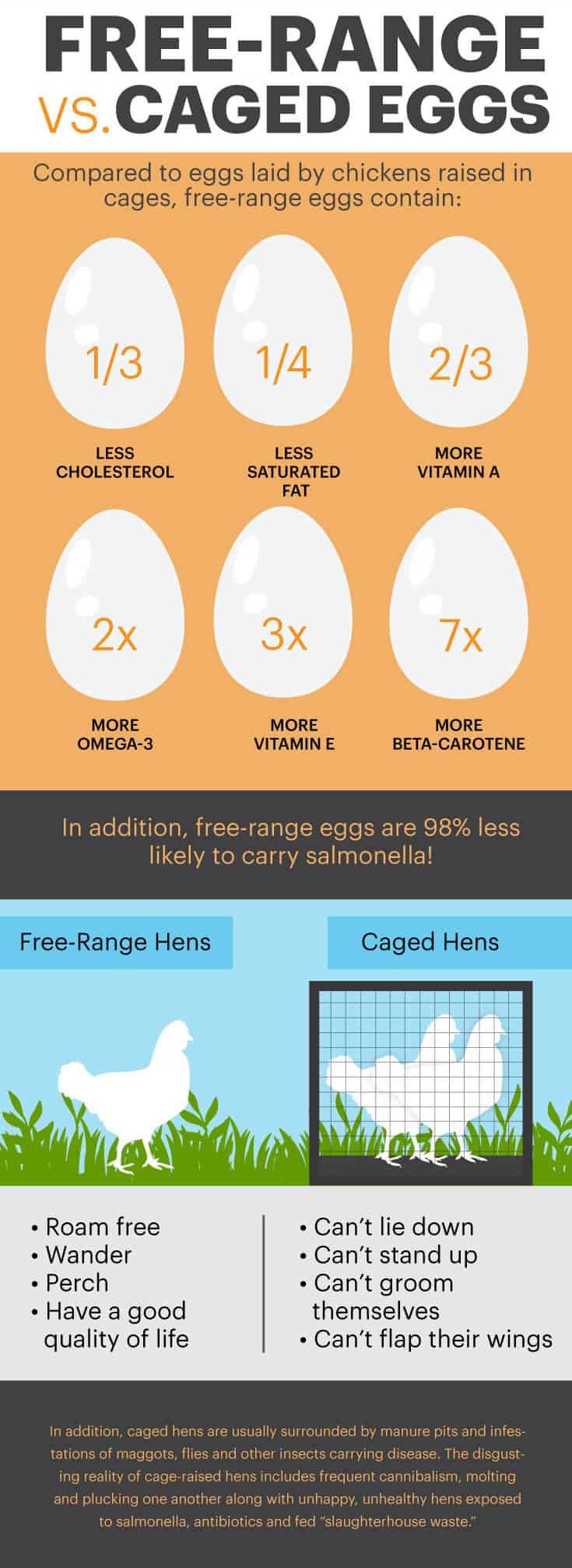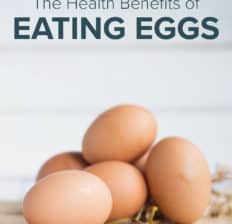This Dr. Axe content is medically reviewed or fact checked to ensure factually accurate information.
With strict editorial sourcing guidelines, we only link to academic research institutions, reputable media sites and, when research is available, medically peer-reviewed studies. Note that the numbers in parentheses (1, 2, etc.) are clickable links to these studies.
The information in our articles is NOT intended to replace a one-on-one relationship with a qualified health care professional and is not intended as medical advice.
This article is based on scientific evidence, written by experts and fact checked by our trained editorial staff. Note that the numbers in parentheses (1, 2, etc.) are clickable links to medically peer-reviewed studies.
Our team includes licensed nutritionists and dietitians, certified health education specialists, as well as certified strength and conditioning specialists, personal trainers and corrective exercise specialists. Our team aims to be not only thorough with its research, but also objective and unbiased.
The information in our articles is NOT intended to replace a one-on-one relationship with a qualified health care professional and is not intended as medical advice.
Egg Nutrition Facts & Health Benefits Explain Why It’s a Superior Food
August 3, 2024

We all know that eggs are delicious, but did you know they can also reduce your risk of a laundry list of diseases, protect your skin and eyes from ultraviolet damage, and improve liver and brain function? It’s true, and these are just a few of the amazing potential benefits of egg nutrition.
Eggs are also a great source of protein and can help provide a wealth of important nutrients, including selenium, vitamin B12, phosphorus and riboflavin, all of which play a key role in overall health.
With that in mind, here is what you need to know about eggs, including the benefits and nutrition facts of eggs, plus some easy ways to add them to your diet.
Egg Nutrition Facts
The nutrition facts of eggs can vary based on several different factors. For example, the exact amounts of egg nutrition in 100 grams of eggs is significantly different than the list of one egg nutrition facts.
The yolk and whites of the egg also contain a different set of nutrients, and the way that eggs are cooked and prepared can also have an impact on overall nutritional value.
Here are the nutrition facts for several specific types of eggs.
Hard-boiled egg
The hard-boiled egg nutrition profile is high in protein, low in total fat and rich in several important nutrients, including selenium, riboflavin and vitamin B12.
One large hard-boiled egg (about 50 grams) contains the following nutrients:
- Calories: 77.5
- Total Carbohydrates: 0.6 g
- Sugar: 0.6 g
- Total Fat: 5.3 g
- Saturated Fat: 1.6 g
- Polyunsaturated Fat: 0.7 g
- Monounsaturated Fat: 2 g
- Protein: 6.3 g
- Sodium: 62 mg (<1% DV*)
- Selenium: 15.4 mcg (28% DV)
- Riboflavin: 0.3 mg (23%–27% DV)
- Vitamin B12: 0.6 mcg (25% DV)
- Pantothenic Acid: 0.7 mg (14% DV)
- Phosphorus: 86 mg (12% DV)
- Vitamin A: 74.5 mcg (8%–11% DV)
- Folate: 22 mcg (6% DV)
Egg white
The amount of egg nutrition in the white vs. yolk can vary quite a bit. In particular, egg whites are lower in calories and fat but are a good source of high-quality protein.
However, the egg white nutrition profile contains a smaller range of micronutrients and is lower in certain vitamins and minerals, such as selenium.
One large egg white (approximately 33 grams) provides the following nutrients:
- Calories: 17.2
- Total Carbohydrates: 0.2 g
- Sugar: 0.2 g
- Total Fat: 0.1 g
- Protein: 3.6 g
- Sodium: 54.8 mg (<1% DV*)
- Selenium: 6.6 mcg (12% DV)
- Riboflavin: 0.1 mg (8%–9% DV)
Egg yolk
Compared to the egg whites nutrition profile, egg yolks are higher in calories and fat but slightly lower in protein. The egg yolk nutrition profile also boasts a much broader array of important vitamins and minerals, including selenium, phosphorus and vitamin B12.
One large egg yolk (roughly 17 grams) holds the following nutrients:
- Calories: 54.7
- Total Carbohydrates: 0.6 g
- Sugar: 1 g
- Total Fat: 4.5 g
- Saturated Fat: 1.6 g
- Polyunsaturated Fat: 0.7 g
- Monounsaturated Fat: 2 g
- Protein: 2.7 g
- Sodium: 8.2 mg (<1% DV*)
- Selenium: 9.5 mcg (17% DV)
- Vitamin B12: 0.3 mcg (13% DV)
- Pantothenic Acid: 0.5 mg (10% DV)
- Phosphorus: 66.3 mg (9% DV)
- Riboflavin: 0.1 mg (8%–9% DV)
- Vitamin A: 64.8 mcg (7%–9% DV)
- Folate: 24.8 mcg (6% DV)
- Vitamin D: 37.1 IU (5%–6% DV)
Small egg
The small egg nutrition profile is a good source of several key nutrients, including protein, riboflavin and vitamin A.
One small egg (about 38 grams) has about:
- Calories: 54.3
- Total Carbohydrates: 0.3 g
- Sugar: 0.1 g
- Total Fat: 3.6 g
- Saturated Fat: 1.2 g
- Polyunsaturated Fat: 0.7 g
- Monounsaturated Fat: 1.4 g
- Protein: 4.8 g
- Sodium: 54 mg (<1% DV*)
- Riboflavin: 0.2 mg (15%–18% DV)
- Vitamin B12: 0.3 mcg (13% DV)
- Phosphorus: 75.2 mg (11% DV)
- Vitamin A: 60.8 mcg (7%–9% DV)
- Folate: 17.9 mcg (4% DV)
Large egg
The large egg nutrition profile supplies a similar set of nutrients as smaller eggs but with a slightly higher amount of vitamin A, vitamin B12 and phosphorus.
One large egg (approximately 50 grams) includes the following nutrients:
- Calories: 71.5
- Total Carbohydrates: 0.4 g
- Sugar: 0.2 g
- Total Fat: 4.8 g
- Saturated Fat: 1.6 g
- Polyunsaturated Fat: 1 g
- Monounsaturated Fat: 1.8 g
- Protein: 6.3 g
- Sodium: 71 mg (<1% DV*)
- Vitamin B12: 0.4 mcg (17% DV)
- Riboflavin: 0.2 mg (15%–18% DV)
- Phosphorus: 99 mg (14% DV)
- Vitamin A: 80 mcg (9%–11% DV)
- Folate: 23.5 mcg (6% DV)
Believe it or not, eggshells also provide some benefits as well, including being high in calcium. Plus, there are many ways you can use eggshells beyond food.
Health Benefits of Eggs
1. Reduce risk of heart disease
Thanks to the incredible egg nutrition facts, this power-packed ingredient can help keep your heart healthy and strong.
A comprehensive study released in 2015 discussed the assumption many people across the world have that the fat content in eggs is actually dangerous to those at risk for heart problems or diabetes. However, consuming the right kinds of eggs proved to be beneficial across the board, regardless of pre-existing conditions.
One reason that eggs are such a heart-healthy food is due to the presence of omega-3 fatty acids. Omega-3 fatty acids, consumed as part of a healthy diet, may help relieve inflammation, lower triglycerides and reduce blood cholesterol levels, all of which are risk factors for heart problems.
Eggs are actually a rare high-cholesterol food to include versus avoid, as well.
In addition to lowering blood triglycerides, eggs have been observed in clinical trials to regulate cholesterol absorption and inflammation in the bloodstream, balancing the ratio of high-density lipoproteins (HDLs) to low-density lipoproteins (LDLs), which could also help protect against heart disease.
2. May help prevent disease
In addition to protecting heart health, eggs may also aid in the prevention of metabolic syndrome, which is a cluster of conditions that increases the risk of issues like heart disease, stroke and diabetes.
One study released in 2016 studied participants over 40 for almost 3.5 years to evaluate how egg consumption impacted metabolic syndrome. The study found that higher egg consumption could reduce the risk of metabolic syndrome in adults over 40 and that it had a positive, significant impact on blood sugar and triglyceride levels in men, in particular.
Not only that, but eggs also contain carotenoids, which are a type of antioxidant compound that can help protect against oxidative damage to the cells. Some research also shows that antioxidants may play a key role in disease prevention and could reduce the risk of developing chronic conditions like diabetes, cancer and autoimmune disorders.
3. Improve eye health
Carotenoids aren’t just beneficial for overall health and disease prevention. They also benefit your eye health.
Two “oxygenated” carotenoids that are especially important for your eyes are lutein and zeaxanthin.
These two nutrients are found in various places in the body, but they are the only two of 600 total carotenoids that exist in the eyes — and their concentration is higher there than anywhere else in the body.
They work to maintain eye health by filtering out dangerous high-energy blue spectrums of light and acting as both antioxidants and anti-inflammatory compounds.
What’s more, some research has found that lutein and zeaxanthin could aid in the prevention and treatment of many common eye diseases, including macular degeneration, glaucoma and cataracts.
4. Aid in weight loss
Eggs are low in calories but loaded with protein, making them an awesome addition to a well-rounded weight loss diet. Studies show that protein can reduce levels of ghrelin, the hunger hormone, to help curb cravings and support long-lasting weight loss.
Eggs are also very filling, which is another reason why they’re such a stellar addition to your diet if you’re looking to lose weight.
One study in Journal of the American College of Nutrition actually found that swapping out bagels for eggs for breakfast increased satiety and reduced overall food intake over the next 36 hours, which could potentially translate to increased weight loss.
5. Maintain liver function and brain health
Choline, found in eggs, is an important micronutrient that can be especially beneficial to brain and liver function.
In fact, the liver depends on choline to operate correctly, and one sign of a choline deficiency is poor liver function. Low choline levels are correlated with fatty liver disease, and some research in animals also indicates that choline deficiency may be linked to some types of cancers as well.
Plus, in proper amounts, choline has also been found to help treat certain brain issues, such as depression, and improve memory and cognitive function.
6. Keep your skin healthy
Besides protecting eye health by filtering out certain light wavelengths, the lutein and zeaxanthin found in the egg nutrition profile also help keep your skin healthy.
By filtering out the more harmful blue spectrum rays, these carotenoids slow down the oxidative damage from light that can wreak havoc on your skin, specifically by UV rays, to reduce signs of aging and optimize skin health.
7. May protect against Alzheimer’s
New research published in 2024 suggests eggs might help prevent Alzheimer’s disease, a progressive disease that affects memory and cognition. The study, published in the Journal of Nutrition, found that consuming more than one egg per week was associated with a 47% lower risk of developing dementia compared to those who ate fewer eggs.
Research conducted in Spain had similar findings, noting that “egg consumption is associated with a reduced risk of dementia.” As such, eggs are one of the top brain-boosting foods.
8. Help build muscle and energy
Eggs contain all nine essential amino acids, the building blocks of protein. These are crucial for muscle repair and growth.
For instance, egg nutrition provides the amino acid leucine, which is is particularly effective in stimulating muscle protein synthesis.
Eggs also provide phospholipids, omega-3 fatty acids, cholesterol, and vitamin D, all of which support muscle health and growth.
That’s not all. Eggs are rich in B vitamins, including B12, riboflavin and folic acid. These vitamins are essential for energy metabolism, helping your body convert food into fuel.
Plus, while primarily known for muscle building, protein also plays a role in sustained energy levels. It helps regulate blood sugar and prevents energy crashes.
Free-Range Eggs vs. Conventional
It may seem simple to just pick up the first carton of eggs you spot in the supermarket. However, the conditions in which hens are raised to lay eggs drastically affects not only the nutritional content of the eggs, but also the risk of consuming dangerous bacteria, such as salmonella.
You can buy eggs laid by free-range hens (allowed to roam, wander, perch and have a high quality of life) or cage-raised hens (unable to move or engage in normal activity).
Caged hens can’t lie down, stand up, groom themselves or flap their wings. They’re held in cages averaging about 67 square inches of space and usually surrounded by manure pits and infestations of maggots, flies and other disease-carrying insects.
Time and time again, the differences between cage-raised and free-range eggs have been apparent. Free-range eggs may have:
- ⅓ less cholesterol
- ¼ less saturated fat
- ⅔ more vitamin A
- 2 times more omega-3
- 3 times more vitamin E
- 7 times more beta-carotene
Not only do these eggs clearly win in the nutrition category, but free-range eggs are 98 percent less likely to carry salmonella! It’s no surprise, considering how cage-raised hens are expected to live.
Therefore, free-range eggs are a much better option to ensure food safety, support ethical farming practices and maximize the potential egg nutrition facts.

Egg Recipes
Whether you like them hard-boiled, scrambled, over easy, poached or anything in between, there are dozens of ways to make eggs interesting.
Try whipping up a fried egg sandwich, adding eggs to a quiche or scrambling them into a casserole. Hard-boiled eggs are also a great addition to many different kinds of salads and work well as a nutritious, filling snack to keep you going between meals.
Need more inspiration? Here are a few other delicious egg recipes:
- Baked Eggs and Spinach
- Turmeric Eggs
- Eggs Benedict with Asparagus
- Breakfast Salmon Egg Bake
- Traditional Egg Salad
Egg Allergy
Unfortunately, egg allergies are one of the common food allergies in the U.S., with some research suggesting that approximately 1 percent to 2 percent of all children in the U.S. develop allergies to eggs and egg products.
If you notice any symptoms like hives, itching, swelling or stomach upset after consuming eggs, it’s best to discontinue consumption and consult with your doctor.
Some research indicates that consuming eggs baked into pastries and baked goods can elicit less of an allergic reaction than consuming whole eggs on their own. In fact, it’s estimated that around 70 percent to 80 percent of those with an allergy to eggs can tolerate baked goods containing eggs, like muffins and cakes.
However, it’s best to talk to your doctor and exercise caution consuming any products containing eggs if you have an allergy.
You can try egg substitutes as well.
If you’re allergic to dairy, you may wonder: Are eggs dairy?
The answer is no, so an allergy or intolerance to dairy doesn’t mean you’ll have the same issues with eggs.
Risks and Side Effects
Although many advise against eating boiled eggs every day to help keep cholesterol in check, more and more research has found that dietary cholesterol from healthy foods like eggs may not have much of an impact on blood cholesterol levels for most healthy adults.
For instance, one paper published by the University of Connecticut found that eggs could slightly increase cholesterol levels for about 30 percent of the population (known as “hyper-responders”). However, moderate egg consumption had no effect on cholesterol levels for the remaining 70 percent.
People at risk for heart problems, those with diabetes or those who take choline supplements should consult with a trusted health professional to determine the appropriate amounts of eggs to consume on a daily or weekly basis.
Finally, keep in mind that raw eggs have a higher risk of contamination with harmful bacteria, such as salmonella. Opting for cooked eggs instead of raw or selecting pasteurized eggs whenever possible can greatly reduce the risk of contamination and foodborne illness.
Final Thoughts
- Eggs are high in a number of important nutrients. Although the exact amount can vary based on the type, size and cooking method, eggs are typically high in protein, selenium, vitamin A, phosphorus, riboflavin and vitamin B12.
- Potential egg nutritional benefits include increased weight loss, better skin and eye health, enhanced liver and brain function, and a reduced risk of heart disease and metabolic syndrome.
- Free-range eggs, in particular, tend to be safer, more ethically produced and higher in several important nutrients.
- There are many ways to enjoy eggs, and they can be easily incorporated into many different recipes, making them a great addition to a balanced diet.






